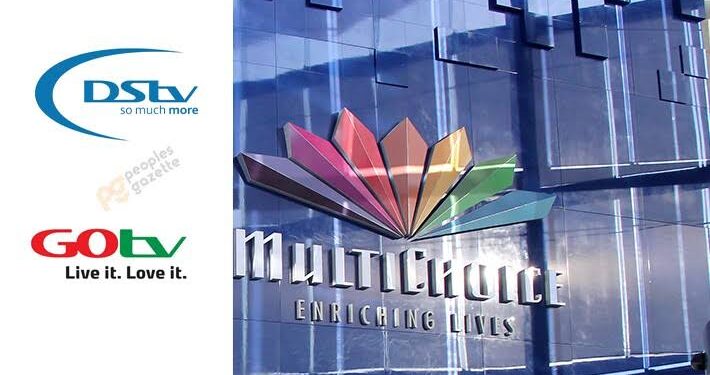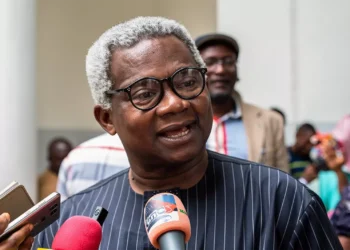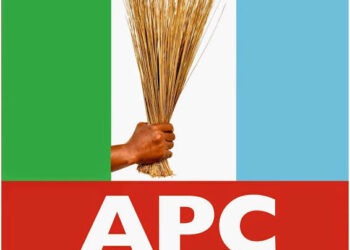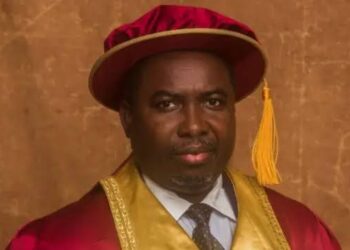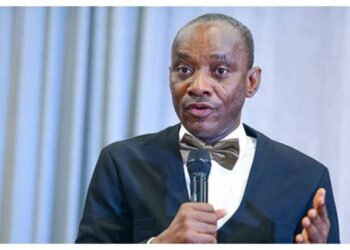MultiChoice Nigeria, the owners of DStv and GOtv, filed a lawsuit against the Federal Competition and Consumer Protection Commission (FCCPC) for interfering with its recent subscription price increase, but Justice James Omotosho of the Federal High Court Abuja dismissed the case.
However, the court ruled that the FCCPC cannot implement price limits without adequate legal support, even though it may look into market conditions.
Justice Omotoso declared in his ruling that the claim was an abuse of the legal system because Lagos State was already dealing with comparable cases.
He emphasised that the new petition is inappropriate because the plaintiff ought to have pursued its arguments in that court.
Justice Omotoso, however, noted that while the FCCPC has investigative powers under its establishing Act, it lacks the authority to fix or suspend prices unless specifically delegated by the President through a gazetted instrument.
No such delegation was presented to the court.
He went on to say that because Nigeria has a free market, service providers like MultiChoice are free to set their own tariffs, which customers are free to accept or reject.
The judge also decided that the FCCPC’s actions, which included ordering MultiChoice to halt its price hike, violated the company’s right to a fair trial and seemed to be biased.
The FCCPC’s assertion that MultiChoice had a dominant market position was also rejected by Justice Omotosho, who deemed the argument implausible.
He went on to say that Nigeria can function without the plaintiff’s services; thus, using them is optional and not necessary.
The judge also decided that the FCCPC’s actions, which included ordering MultiChoice to halt its price hike, violated the company’s right to a fair trial and seemed to be biased.
He cautioned that regulatory agencies’ attempts to set pricing could deter investors and hurt the economy.
The FCCPC may look into market practices, but it cannot set price limits without the right legal support, the court ruled.
On March 1, 2025, MultiChoice raised subscription fees by as much as 25%, citing challenges from operating costs and inflation.
The legal case was sparked by the FCCPC’s opposition to the proposal, which included threatening sanctions and demanding regulatory scrutiny.
Although the FCCPC is an agency of the Nigerian federal government, Justice Omotosho went on to say that it must operate within its authority and in accordance with applicable laws.
According to him, the FCCPC must publish a statement after conducting an inquiry into a corporation, even though it has the authority to declare market dominance and discriminatory prices against it.
According to the court’s facts, the investigation had not started until the FCCPC sent MultiChoice the suspension order.
He claimed that the FCCPC’s order against MultiChoice’s pricing rise went beyond its authority.
The judge stated that Nigeria is a free market economy and that the president alone has the authority to form a price control board and regulate pricing against any foreign companies or regulated goods and services that are in default.
The FCCPC solely serves as an advisory body on price-fixing matters, Justice Omotosho stated.
The judge ruled that no other individual, organisation, or body could exercise the president’s authority to control prices.
He emphasised that the FCCPC may only control prices if the president gives the Commission this authority through an “instrument”.
Because MultiChoice is a private firm and Nigeria has a free market economy, Justice Omotosho ruled that the only way to unilaterally limit its subscription costs is by a presidential decree that complies with applicable laws.
Omotosho further maintained that if the president decides to set rates, it must apply to the entire industry and not just one participant in accordance with applicable legislation.
According to the judgement, the FCCPC has the authority to establish regulations pertaining to anti-competition and anti-consumer protection, among other things, with the exception of price fixing.
He reminded them that the Competition and Consumer Protection Tribunal had decided in 2022 that MultiChoice might raise its prices while Nigerians could choose to use other pay TV services.
According to Justice Omotosho, the FCCPC seems to be unfairly targeting MultiChoice while disregarding the costs of other pay TVs and internet TVs in Nigeria, such as YouTube.


